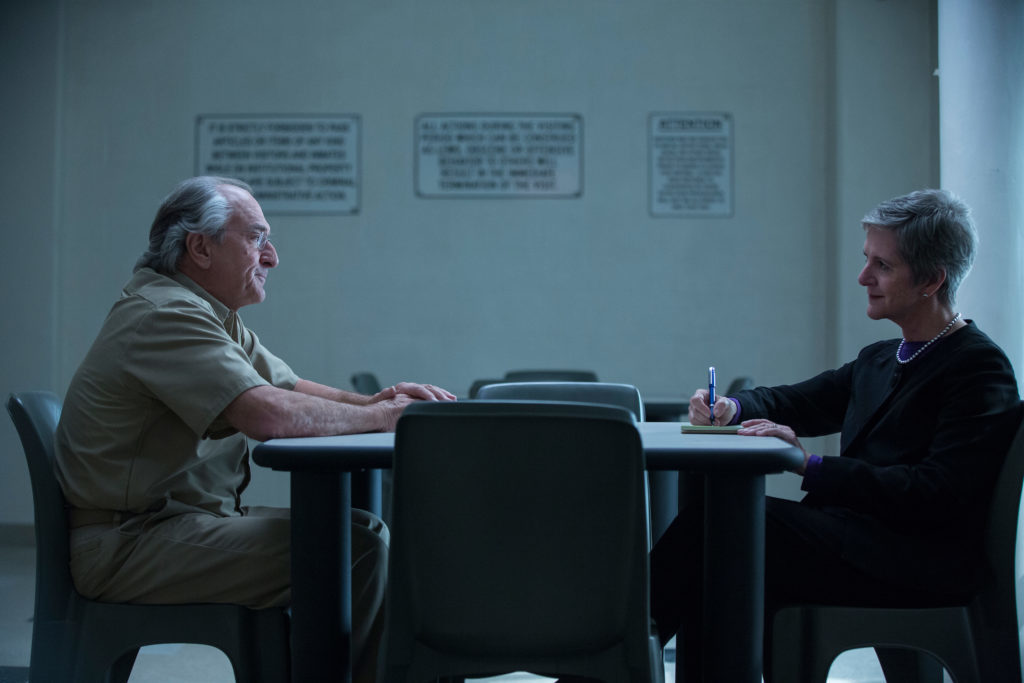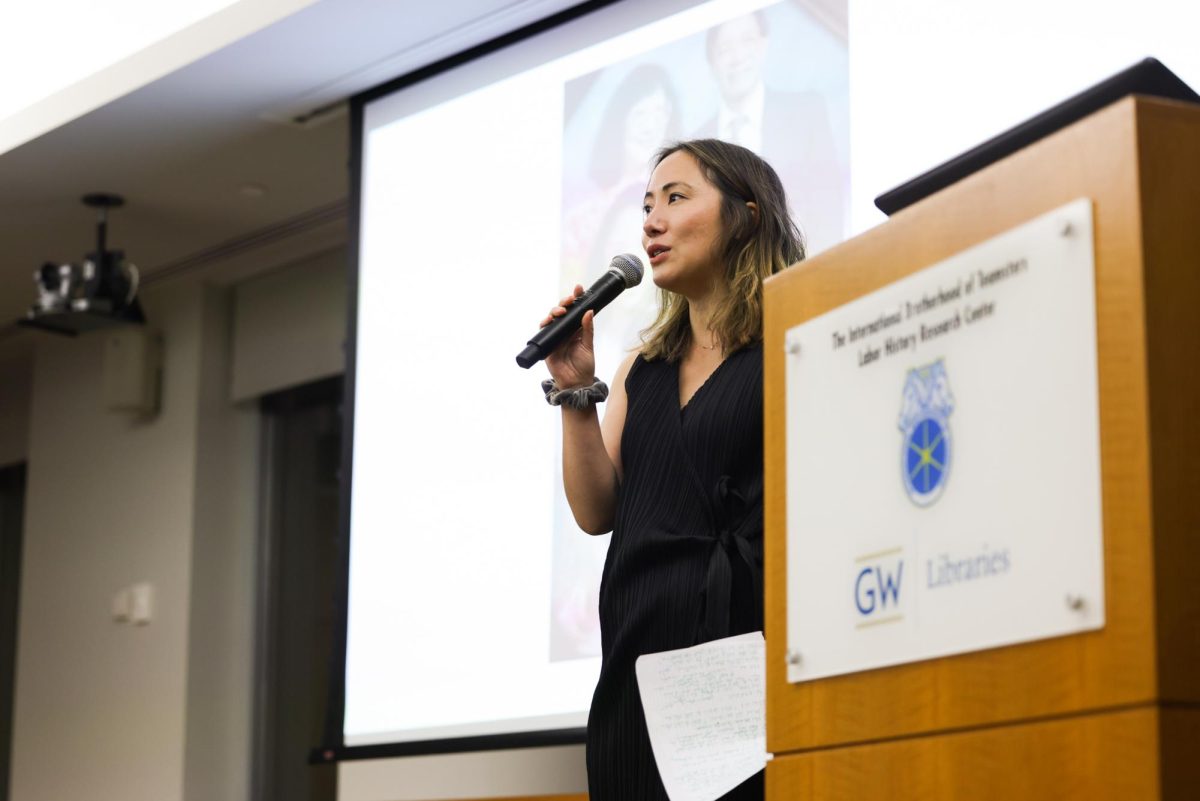Updated: May 1, 2017 at 3:45 p.m.
Alumna Diana Henriques was the first to interview American fraudster and former stockbroker Bernie Madoff after his incarceration. Now she will star as herself in an HBO film premiering this month.
The 1969 graduate of the Elliott School of International Affairs and former news editor at The Hatchet came face-to-face with Madoff, the man who would become the subject of her bestselling book “The Wizard of Lies” and an HBO film by the same name, about 20 years into her journalism career while working as a financial reporter for The New York Times.
When Madoff’s arrest for running a Ponzi scheme, one of the biggest fraud cases in history, was first publicized in December 2008, Henriques said it had been decades since she covered him on Wall Street. He had been quoted in some of her stories because his firm on Wall Street was one of the first to embrace computerized trading, but when others in the newsroom heard of his arrest they weren’t as shocked as Henriques was.
“It didn’t ring a lot of bells with any of the editors or reporters around me in the newsroom, but I remembered him,” Henriques said. “He was an important figure of the behind-the-scenes life on Wall Street.”
Henriques said she was lucky to be the lead reporter from The New York Times covering the scandal that “shook Wall Street to its roots.” After her extensive reporting and coverage, she was asked to write about the scandal for her fourth book, which became “The Wizard of Lies.”
From the moment writers began turning her book into a script in 2011 to when the very last scene was filmed, Henriques served as the set’s resident Madoff expert.
Henriques stars as herself in the HBO film, which premieres May 20, alongside Hollywood royalty like actors Robert De Niro and Michelle Pfeiffer.
“What was difficult was relaxing enough to not actually play myself, but to simply be myself on screen,” Henriques said.
Henriques wasn’t originally cast to play herself in the film – her character wasn’t even a part of the initial script. But Sam Levinson, a writer on the film and the director’s son, decided the story could be told best if it was framed around Henriques’ interviews with Madoff when he was housed in a North Carolina federal prison.
“My character shows up in the cast and I’m saying ‘gee, I wonder who’s going to play me,’” she said. “This became the go-to dinner party conversation.”
But soon the guessing game ended. Barry Levinson, the director of the film, asked her to read lines during a screen test to see if she had what it took to play herself as the character he envisioned on screen.
During the screen test, Henriques acted out a scene depicting her first interview with Madoff in prison, but she didn’t follow the script.
The lines had Henriques acting confrontational towards Madoff, which she said didn’t reflect how she acted in that first interview at all.
“I had worked 18 months for him to agree to talk to me, and I’m not going to come in with two guns blazing and alienate him in the first 5 minutes,” she said. “I’m going to try and warm him up and get him to relax.”
This was one of the first times that her experience and feedback shaped the film to make it as accurate as possible, even though it’s not a completely factual documentary, Henriques said.
Henriques said it was easy to put herself back in the moment where she was interviewing the real Madoff because De Niro was “like a vacuum cleaner” preparing for the role. He met with Henriques on several occasions to ask questions about everything from how Madoff laughed to what kind of hand gestures he did, she said.
“All I can say is De Niro made it amazingly easy because he was so completely portraying a Bernie Madoff that I recognized,” she said.
Despite feeling “a bit starry-eyed” while on set filming the movie, Henriques said the best part was seeing the production of a film from the front lines.
“I can’t stop being a reporter,” Henriques said. “All through this experience I was like a kid in a candy store learning how these great artists work.”
This post was updated to reflect the following correction:
The Hatchet incorrectly referred to “The Wizard of Lies” as a novel instead of a book. It is now correct. We regret this error.




